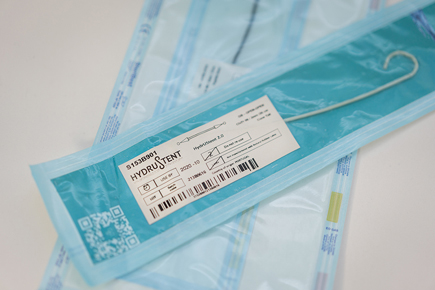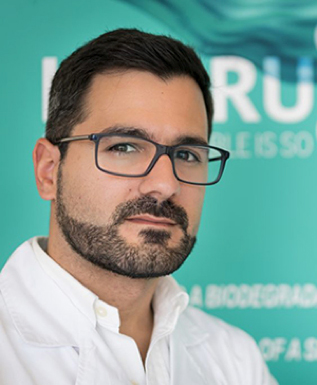Source: HydrUstent Jul 03, 2018 7 years, 5 months, 3 days, 19 hours, 56 minutes ago
Stents are widely used in patient care, but a major complication is infection and, for many types of stents, the need for eventual surgical removal.
HydrUStent, a startup based at the University of Minho in Portugal, hopes to improve those limitations.
HydrUStent’s product is a ureteral stent made from a patented material that is antibacterial, homogeneous, and biodegradable. It degrades by dissolution of the material in urine, which prevents the need for a second surgery for stent removal. “The dissolution profile is controlled and [depends] on the formulation used for stent production,” says CEO Alexandre Barros. Based on a patient’s specific needs, “the degradation rate in urine can be tuned from 15 to 60 days of
implantation.”
HydrUStent CEO Alexandre Barros
Timed degradation also helps prevent bacterial colonization and biofilm formation, according to Barros, which contribute to infection and are another complication of stents. “The major benefit for the payer is a reduction of 60% of the costs of the temporary stent treatment,” he says. “A second surgery is avoided and no more drug therapy is necessary after stent placement.”
The concept was originally envisioned in 2012 by Dr. Estevão Lima, the Director of the Urology
Department at the Hospital de Braga in Portugal, which was developed with help from 3Bs Research Group, a Portuguese biomaterials research organization, directed by Prof. Rui L. Reis.
After the company was officially founded in 2016, the team has worked to validate the technology through several
in vivo studies and now have a working prototype that has shown to be more biocompatible than commercially available ureteral stents. Currently, HydrUStent is working with medical device manufacturers in order to produce the device for use in humans.
“Our biggest goals are to have, in five years, three biodegradable
medical device products” validated and in the market, says Barros. He notes that the company’s patented biodegradable materials could also be used in various devices that would otherwise require surgical removal—the ureteral stent is just the beginning.
https://hydrustent.com

